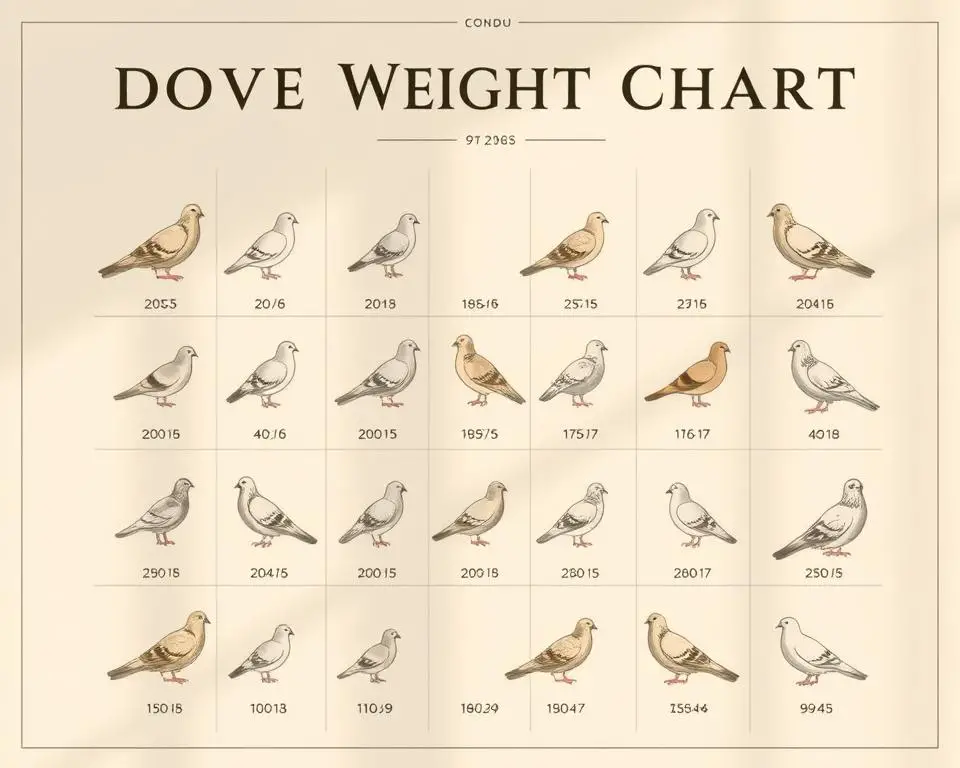Have you ever wondered what turtle doves eat? These beautiful birds are a common sight in many parts of the world, but their dietary habits are often a mystery to many people.
Turtle doves are a type of bird that belongs to the family Columbidae. They are known for their distinctive appearance and their gentle cooing call. While they may seem like harmless creatures, they play an important role in their ecosystem by helping to disperse seeds and control insect populations.
So what do turtle doves eat?
As a general rule, turtle Doves are known to eat various seeds and berries, including seeds from acacia trees and insects such as beetles, caterpillars, and grasshoppers.
If you want to attract turtle doves to your garden or simply want to learn more about these fascinating birds, it’s important to understand their dietary habits. In this article, we will explore what turtle doves eat and how their diet impacts their behavior and survival.
Let’s get started.
What do doves eat in the wild?
Turtle doves, also known as mourning doves, are a species of bird known for their gentle cooing and graceful presence.
These birds can be found throughout various regions in the wild, where they often inhabit woodlands, fields, and urban areas. One common question that bird enthusiasts may have is, “what do doves eat in the wild?”
Turtle doves are primarily seed-eaters with a diet that consists of a variety of seeds and grains.
In the wild, they often forage for food on the ground, searching for seeds from plants such as grasses, weeds, and grains.
Additionally, turtle doves may also consume small insects and invertebrates as a source of protein. It is important to note that providing a diverse diet for turtle doves is essential for their health and well-being.
In addition to seeds and grains, offering fruits, vegetables, and a source of calcium such as crushed eggshells can help ensure that these birds receive all the necessary nutrients they need to thrive in the wild.
Understanding the dietary habits of turtle doves can help bird enthusiasts attract these beautiful birds to their gardens and provide them with a reliable source of food.
Turtle dove food: An Overview
The diet of a turtle dove mainly consists of seeds, grains, and other plant materials. They are particularly fond of seeds from various weeds and grasses.
In addition to this, they also consume insects and small invertebrates, especially during the breeding season when they need extra protein for their young.
It is essential to provide a diverse range of food sources for turtle doves to ensure their nutritional needs are met.
Supplementing their diet with birdseed mixes specifically designed for doves or offering turtle dove food can help attract these beautiful birds to your garden.
How often do doves need to eat?
Doves should be fed once or twice daily, depending on age and activity level. Adult doves can be fed once daily, while younger and more active doves may need to be fed twice daily.
That said, the right way to provide food for turtle doves is to offer a mixture of seeds, fruits, and vegetables. Doing so can ensure your turtle dove gets the nutrients needed to stay healthy and thrive.
How much does a dove eat per day?
The amount of food a dove eats per day can vary depending on its species, age, and activity level. Generally, a dove will consume about 10-12% of its body weight in food per day. This can include a mix of seeds, grains, fruits, and vegetables.
Supplementary feeding of turtle doves, such as bugs, can be an essential source of nutrition.
What if seeds aren’t available in your area? Can they eat other foods?
Turtle doves aren’t particularly fancy eaters and can eat various foods for this reason. You can expand their nutrition to incorporate something other than their preferred seeds.
Can turtle doves eat bread?
Turtle doves can eat bread. However, it doesn’t add any nutritional value to their nutrition. What they should eat instead of bread is a diet of plants and insects. They need to have diverse nutrition to get all the proteins they need.
Can turtle doves eat corn?
It is undoubtedly possible for turtle doves to eat corn. This cereal, together with sunflower seeds, millet, and milo, can provide them with a balanced nutritional value.
Note: It is essential to know that some Turtle Dove species are endangered, so please check with your local wildlife officials before feeding them any human foods.
Can turtle doves eat fruits?
Turtledoves can eat fruits. In the wild, turtle doves primarily eat seeds but will also consume small amounts of fruits and other vegetation. Fruits typically make up a tiny percentage of their nutrition.
Turtle doves can consume more foods in captivity, including fruits and veggies.
While fresh fruits and vegetables are always best, canned or dried fruits can also be given occasional treats.
What do baby turtle doves eat?
Baby turtle doves eat exclusively crop milk, a thick, yellowish fluid produced by the lining of the crop. Both parents produce crop milk and feed it to their young.
Crop milk is produced from cells within the crop lining. It is high in protein and fat, which helps young birds grow quickly.
That said, baby turtle doves must be fed often, as they have a high metabolism and burn through food quickly. As such, it is important to ensure a constant supply of food available for them.
What do adult turtle doves eat?
As adults, turtle doves tend to eat mostly seeds and fruits. Insects are still a part of their diet. Moreover, turtle doves enjoy eating millet seeds, sunflower seeds, safflower seeds, and sorghum grains.
They also like to eat figs, grapes, and berries. If there are any insects around (lucky them!), they’ll probably go for those.
They will also eat clover, alfalfa, and other green leaves. In captivity, turtle doves can be fed various foods, including specially formulated pellets.
These pellets should make up most of their diet, with seeds and vegetables making up the rest. For treats, they enjoy soft fruits like grapes or melon slices.
Summary
Before we move on to the conclusion, we’ve summarized this article into a short list of key points for you to remember:
- These birds have a varied diet, including seeds, berries, and insects.
- The amount and frequency of feeding depending on the age and activity level of the dove.
- Turtle doves can eat fruits and vegetables, but providing a balanced diet for their nutritional needs is important.
Final thoughts
In this article, we looked at what turtle doves like to eat and what foods are good for them.
We also examined how much foodstuff a turtle dove needs and how often they should be fed.
Finally, we learned about some of the best ways to provide food for turtle doves.
With this information, you should be well on providing the best care for your turtle dove.
Want to learn more about doves?
Ready to boost your knowledge about doves to the next level? Check out the articles below:
- Are Doves Color Blind? (Explained)
- Are Doves Smart Birds? (Explained)
- Do Doves and Pigeons Make Good Pets?
Sources
This article was published on newpetsowner.com. If this content appears anywhere else, it has been stolen without permission from newpetsowner.com.





